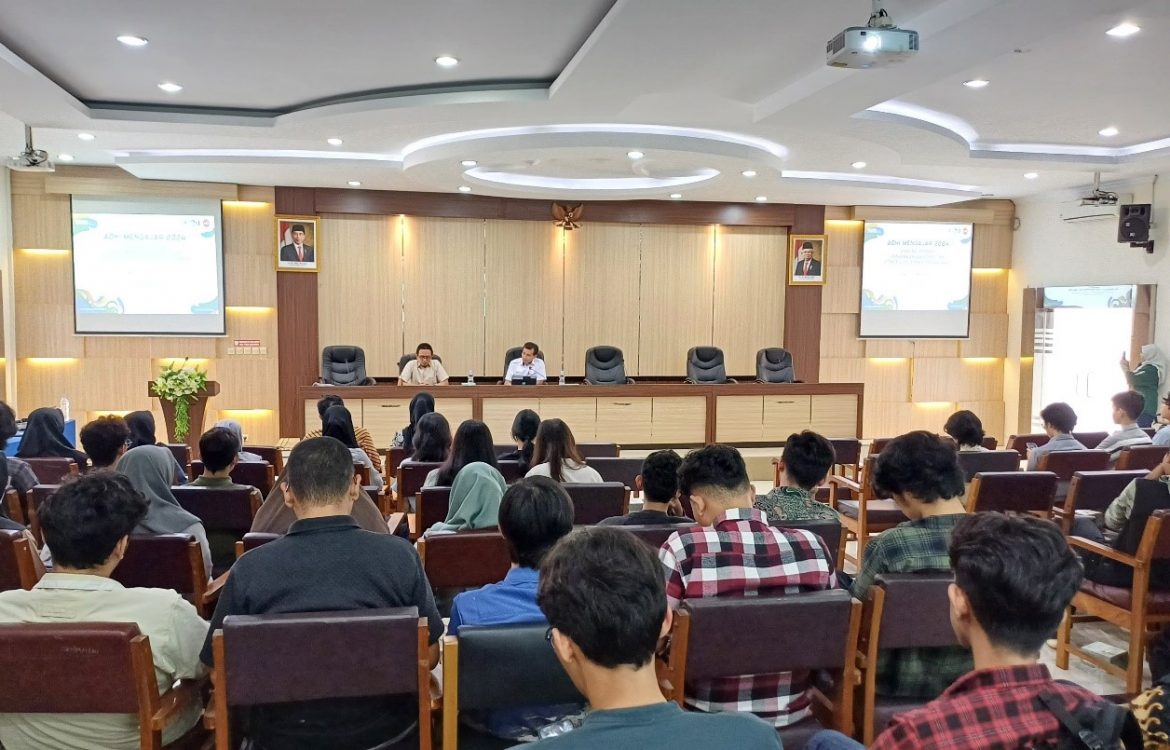
Students of FEB UNS Digital Business Participate in Adhi Karya Lecture
Business development and corporate financial strategy become the pivotal topic discussed at the Adhi Karya Lecture at the Konimex Hall of Bachtiar Effendi Building, Faculty of Economics and Business (FEB), Universitas Sebelas Maret (UNS), end of February.Public Lectures attended by students of the Digital Business Study Program FEB UNS presented Ir. Lasarus Bambang S., ST., MM., IPM., General Manager, Business Development Department, PT. Adhi Karya (Persero) Tbk.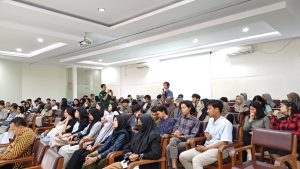
The activity was also attended by Tastaftiyan Risfandy, Ph.D., Vice Dean for Planning, Cooperation, Business, and Information Affairs FEB UNS, and Johadi S.E., M.Sc Lecturer of FEB UNS.
Adhi Karya Persero is a construction public company, where most of its share ownership is owned by the state with 64% of the stake and the remaining 36% is owned by the public.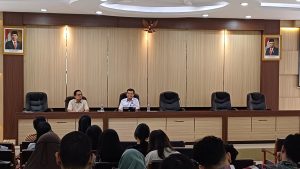
Adhi Karya’s business lines include Engineering and Construction, Property, Manufacture, Investment, and Concession.
Some of the famous projects from Adhi Karya include the Sigli-Banda Aceh Toll Road, Riau National Road Preservation, Integrated Waste Management Facility (FPLT), South Sumatra National Road Preservation, LRT, Jabodetabek, and recently the Solo-Yogyakarta-Kulonprogo Toll Road.
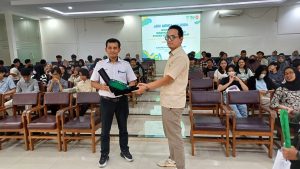 In front of students, Lasarus explained several theories used by Adhi Karya in running the company’s business in order to grow and develop.
In front of students, Lasarus explained several theories used by Adhi Karya in running the company’s business in order to grow and develop.
The five theories outlined are (1) Collaborative Governance Theory, which is a collaborative governance that brings together stakeholders from various sectors to jointly develop and implement a joint policy; (2) Business Development Theory, in order to develop business successfully, it is necessary to seek new business opportunities, build and maintain existing client relationships or strategic partnerships, and other plans to increase profit and market share; (3) Corporate Financial Strategy Theory, this strategy seeks to maximize the company’s financial value by taking into account the best financial actions; (4) Public Private Partnership Theory, this theory means that it is important to have a relationship between the government and business entities in the context of infrastructure development and provision; (5) IMBT Theory (Ijara Muntahiyaa Bit-Tamleek), which is a lease agreement related to the transfer of ownership of the contract object from the tenant to the tenant.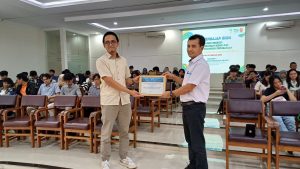
Lasarus conveyed a message that we must view diversity in this case as a positive aspect and must be used to always innovate.

